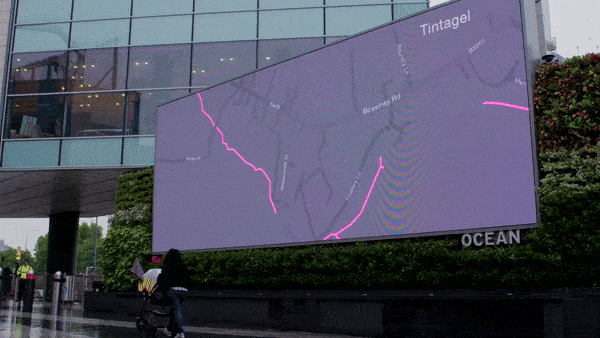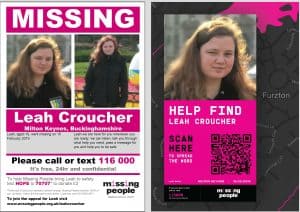How D-ID Added Expression to the Missing Persons Poster

Working with a major non-profit, Missing People, D-ID helped to reinvent the Missing Persons poster for the modern era, making the poster more compelling and memorable.
The missing persons poster is, unfortunately, a fact of life. A page laid out in that classic way – the word ‘missing’ at the top, a small, often grainy image in the middle and a ton of detail at the bottom with a number to call.
London-based agency, Engine, not only realized that this format was outdated, but also ineffective. They were challenged by their client, UK-based non-profit, Missing People to bring the missing person poster into the 21st Century.
Steve Hawthorne, Creative Director at Engine commented: “Ever since ‘Missing’ posters were first created they have never really changed. Whether it’s a person or a pet the basic formula has always remained the same. But in that time our understanding of people and the technology at our disposal have moved on. So we wanted to take a fresh look at ‘Missing’ posters to see how we could make them more effective. With help from an array of incredible partners we hope that we have done exactly that.”
Working with behavioral scientists, they made some key changes such as replacing the standard ‘Missing Person’ headline with the more action-oriented, ‘Help Find’, minimizing text and adding a QR code so people could share the poster quickly and easily on their social channels, to amplify the impact.

But the biggest change was to the face of the person in the poster. Using AI-based tools, they were able to improve the quality of the images to allow them to take up more of the space on the page.
And, using D-ID’s reenactment technology they were also able to animate their faces.
Not only are moving faces more compelling, but many experiments have shown them to be seen as more interesting, attractive, familiar and memorable. This fact is vital when you are trying to get people not only to look at the poster but also process it and hold it in their memory for a period of time.
D-ID worked closely with the team at Engine to animate the faces of several missing people so that they could be put onto digital out-of-home billboards across London. And the results are unmistakable. Far more interesting and eye-catching.
The initiative won a prize in the charity category of Ocean Outdoor’s annual Digital Creative Competition, receiving £75,000 ($95,000) of free media.
And hopefully the impact goes well beyond this campaign. According to Matthew Kershaw, VP Marketing at D-ID, “we are now also in discussion with the UK police to potentially use our API to automate the animation of faces of missing people across the whole UK”.
The impact could be huge. As Jo Youle, Chief Executive of Missing People commented: “70,000 children and young people are reported missing every year in the UK, and many more go unreported… By embracing innovation, we hope the new appeals will have an even greater impact and lead to those featured being found safely.”
Was this post useful?
Thank you for your feedback!


